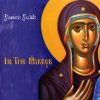Редитељку Милу Турајлић позвала је Америчка академија за филмску уметност и науку да буде њихов члан у сектору документаристике, што значи да ће моћи да учествује и у гласању за Оскара у категорији документарних остварења, преноси Танјуг. Задовољство због овог позива, редитељка је поделила на својој фејсбук страници. Академија је позвала 819 филмских уметника и радника „који су се истакли доприносом биоскопским филмовима и филмској уметности”, а поред Турајлићеве на листи су и аутори филма „Земља меда” Тамара Котевска и Љубо Стефанов, али и многобројни добитници Оскара попут екипе филма „Паразит”.
„Веома сам почаствована позивом да се придружим академији. Невероватно је што ћу се наћи у тако цењеном друштву, у класи 2020, чији је досадашњи рад веома инспиришући. У њих сврставам многе пријатеље, колеге и менторе, а то само показује великодушност и љубав које ова заједница пружа”, написала је Турајлићева, која је недавно дошла у Београд како би доснимила сцене за свој нови документарни филм „Досије Лабудовић”, за који завршава монтажу.
Извор: Политика





